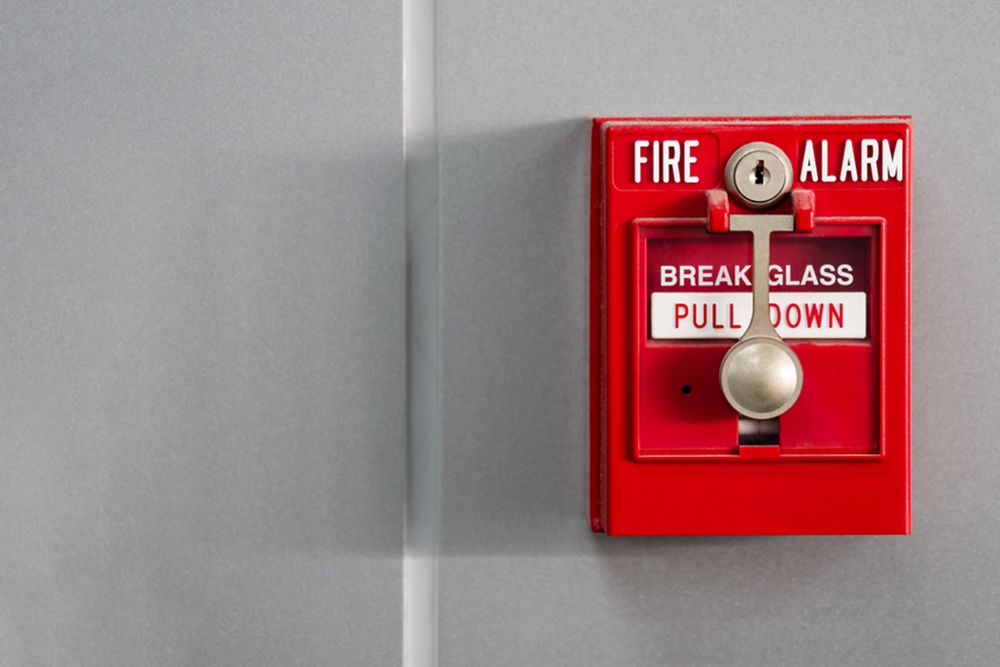 15
Jan
15
Jan
Fire Alarm Troubleshooting: Quick Fixes For Common Issues
- 0 Comment(s)
- January 15, 2025
A properly functioning fire alarm system is a key element in ensuring a building’s safety. However, fire alarm malfunctions can leave you vulnerable to fire hazards. Fire alarm troubleshooting is crucial for addressing and fixing common issues, ensuring your system continues operating effectively. This guide covers the most frequent fire alarm problems and offers quick fixes to get your system back in working condition.
The Importance of Fire Alarm Systems
Fire alarm systems are designed to detect smoke, heat, or other signs of a fire and alert occupants to evacuate. A malfunctioning system can result in delayed responses during a fire emergency. By conducting regular fire alarm troubleshooting, you can avoid these risks. Understanding the potential issues and knowing how to address them is key to maintaining the integrity of your system.
Regular inspection and maintenance can prevent common problems from escalating, but when a fault occurs, knowing how to fix it promptly is invaluable. Let us look at the most common fire alarm system issues and how you can troubleshoot them.
Common Fire Alarm Problems and Quick Fixes
1. False Alarms
False alarms are one of the most frustrating issues with fire alarm systems. They can occur for various reasons, such as dust, insects, or cooking smoke. If your fire alarm frequently triggers without cause, try these troubleshooting steps:
- Check the Smoke Detectors: Dust and debris can interfere with the sensor, causing false readings. Clean the detectors using a vacuum cleaner or compressed air. Follow the manufacturer’s instructions to avoid damaging the sensors.
- Relocate the Detector: If your detector is too close to the kitchen or bathroom, it may be overly sensitive to everyday activities. Consider moving it to a more suitable location.
- Replace the Battery: Low battery power can sometimes cause the alarm to trigger unnecessarily. Replace the battery and check the manufacturer’s guidelines on battery replacement schedules.
2. Alarm Not Responding to Smoke
If your fire alarm does not respond to smoke, it could be due to various issues, from dirty sensors to malfunctioning systems. Here’s how to troubleshoot:
- Test the Smoke Detector: Press the test button on the unit to check if it is working. If the alarm does not sound, it may need new batteries or be replaced.
- Check for Obstructions: Make sure nothing, such as furniture or curtains, is blocking the smoke detector.
- Clean the Unit: Regularly clean the detectors, as dust and dirt can block the sensors, making them less sensitive.
- Check the Wiring: Inspect the wiring for damage or loose connections for wired systems. If wiring is the issue, professional repair may be necessary.
3. Intermittent Beeping
Intermittent beeping can be an irritating problem, often caused by low battery power or a malfunctioning part. Here’s how to resolve it:
- Replace the Battery: Low batteries are the most common cause of intermittent beeping. Replace the battery and test the system.
- Check the Connections: Ensure that all alarm system parts are securely connected. Loose or broken connections can lead to faulty signals.
- Reset the System: Some fire alarm systems may need a reset to clear persistent issues. Follow the manufacturer’s instructions to reset your system properly.
4. The Alarm Goes Off Without Presence of Smoke
If your fire alarm goes off without smoke or heat present, it may indicate a malfunction. Here’s how to troubleshoot:
- Inspect for Power Surges: Power surges can affect the system’s electronics, triggering the alarm unexpectedly. To minimize this risk, use a surge protector for the alarm system.
- Replace or Repair the Unit: If none of the above steps work, the fire alarm system may be faulty and need repair or replacement. Contact a professional to assess the situation.
5. Chirping Noise from Smoke Detectors
Chirping is another common issue with smoke detectors, usually indicating a low battery or a fault within the system. Follow these steps to resolve the issue:
- Replace the Battery: This is the most common cause of chirping. Change the batteries in each smoke detector.
- Check the Expiry Date: Smoke detectors have a lifespan. If your unit is over 10 years old, it may need to be replaced entirely.
- Test the Detector: Press the test button to verify that the unit functions correctly. If it still chirps after replacing the batteries, it may need to be replaced.
6. Low Battery Indicator
Many fire alarm systems will emit a chirping sound when the battery is low, alerting you to the need for a replacement. Here’s how to address this:
- Replace the Batteries: This is the simplest solution. As per the manufacturer’s recommendations, make sure to regularly replace the batteries in all your smoke detectors. Some systems have a battery indicator light that signals when the batteries need changing.
- Ensure Proper Battery Type: Always use the recommended battery type for your specific model. Using the wrong battery may cause the alarm to malfunction or not work.
- Test the Alarm: After changing the batteries, test the alarm to make sure it is functioning correctly. Press the test button and ensure that the alarm sounds.
7. Alarm System Not Communicating with Other Devices
In some cases, especially with interconnected alarm systems, one device may fail to communicate with others. This could result in a situation where only one unit is sounding off when there is a fire.
- Check the Connections: Make sure that all interconnecting wiring or wireless connections are intact. For wired systems, ensure that all cables are properly connected. For wireless systems, check the signal strength and make sure there are no disruptions in communication.
- Reset the System: Resetting the alarm system can often resolve device communication issues. Follow the manufacturer’s instructions to reset your system and check if the problem persists.
- Test the System: Test all interconnected devices once reset to ensure they communicate properly.
8. Continuous Alarm without Smoke or Heat
If your fire alarm system continuously sounds without apparent cause, it could indicate a malfunction or environmental factors interfering with the system’s sensors.
- Check for Environmental Factors: Smoke detectors are sensitive to environmental factors such as humidity, steam, and high temperatures. If your alarm is near a bathroom, kitchen, or air vent, steam from showers or cooking can trigger it. Relocating the unit away from these areas can help prevent false alarms.
- Inspect for Faulty Sensors: If environmental factors are not the cause, it could indicate a faulty sensor. In this case, the sensor may need to be cleaned or replaced. Always refer to the manufacturer’s guidelines for cleaning procedures.
- Replace the Detector: If the above steps do not resolve the issue, it may be time to replace the smoke detector. Old or malfunctioning sensors may need to be replaced to restore functionality.
Troubleshooting Wired vs. Wireless Fire Alarm Systems
1. Wired Systems
Wired fire alarm systems are typically more stable but can experience wiring issues such as short circuits or loose connections. If your system is not responding correctly:
- Inspect the Wiring: Check for any loose or damaged wires. If you are unsure how to check the wiring, consult a professional technician.
- Check the Control Panel: The control panel should display error codes or messages. Refer to the user manual to decode these error messages and fix the problem accordingly.
2. Wireless Systems
Wireless fire alarm systems are gaining popularity for their simple installation process and ability to adapt to various environments without requiring extensive wiring. However, they are prone to interference and signal issues.
- Check the Battery Life: Wireless units depend on batteries. Low battery life can cause the system to fail. Replace the batteries and test the unit.
- Re-establish the Connection: If the signal is weak or lost, try re-pairing the alarm system with its base station. Ensure that there are no obstructions or interference in the signal’s path.
When to Call a Professional for Fire Alarm Troubleshooting
While home and business owners can fix some fire alarm troubleshooting issues, there are times when you should call in a professional. If you notice any of the following, it is best to seek expert assistance:
- Frequent False Alarms: If your alarm frequently goes off without cause, a technician can inspect your system and recalibrate it if necessary.
- Electrical Issues: If you suspect there are wiring or electrical issues, it is important to hire a certified professional to avoid safety hazards.
- System Not Responding: If your fire alarm is not responding to smoke, heat, or other triggers, it may be a sign of a deeper issue that requires professional attention.
Yadkin Fire & Safety: Your Partner in Fire Alarm Troubleshooting
Yadkin Fire & Safety provides top-notch fire safety services and support for all your fire protection needs. If you are experiencing issues with your fire alarm system, we can help. Our team specializes in troubleshooting and maintaining fire safety systems to keep you and your building safe. We also offer comprehensive fire extinguisher services and fire emergency service to ensure your property is always prepared for the unexpected.
If your fire alarm system is not performing as it should, do not hesitate to contact us for professional assistance. We will diagnose the issue and provide the necessary solutions to restore full functionality.
Regular fire alarm troubleshooting is important to maintaining your fire safety system. By identifying and fixing common issues early, you can prevent bigger problems down the line. Whether you are dealing with false alarms, unresponsiveness, or intermittent beeping, following these troubleshooting steps can help. Remember, if the issue persists, it is always best to call a professional to ensure your fire alarm system works properly. Keep your home or business safe by staying on top of your fire alarm maintenance and repairs.

